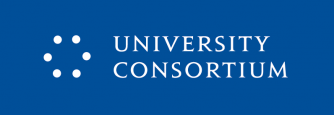Reflections on Russia-West Relations: A UC Fellow's Perspective (Part 1)
Joana Borges-Moron (UC Fellow, St Antony's College, University of Oxford)
Russia’s annexation of Crimea in March 2014, which largely caught off guard Western observers, marked a turning point in Russia’s relations with the West and the future of the post-Cold war international order. There are various schools of thought on the origins of this crisis, which emphasise both long-term and short-term factors. It is clear however, that this event was largely not the result of grievances on Russia’s part that materialised overnight. Indeed, Professor Robert Levgold argues that Russia-West relations have been going through periods of ‘bust and booms’ and that malignant seeds have been poisoning the relationship throughout the years. More generally, according to Professor Timothy Colton, the crisis in Ukraine has its origins in the highly incomplete nature of the post-Cold war settlement. In this respect, a conjuncture of factors, which include an accumulation of grievances on the Russian side, triggered the crisis in Ukraine. Although it is easy nowadays, in the midst of the current crisis, to think that Russia’s relations with the West and particularly the EU, were always confrontational, we must not forget the periods of cooperation and constructive dialogue that we’ve experienced with Russia. In addition to this, both sides ought to inquire critically as to where they have erred, something they are somewhat reluctant to do.
In this respect, the US and the EU need to acknowledge the failures of their policies towards Russia since the 1990s. Back then, there was uncertainty as to the role Russia would play in the new world order. Moreover, amidst the euphoria of the end of the Cold War and the triumph of the liberal order, there was no reason the ‘Russia question’ had to drag on forever. It was pretty straightforward: Russia would join the West; that’s what the ‘end of history’ predicted. In hindsight, those were extremely naïve assumptions. Despite Western efforts to ‘include’ Russia, the Russian leadership felt like it was treated as a second-rate partner whose interests were largely disregarded and there is definitely some truth to this.
NATO expansion and plans for Missile Defence in Central and Eastern Europe to counter ‘threats from Iran’ unsettled Russia. Given that today European corporations are flocking to Iran to secure commercial deals following the lifting of sanctions, this justification is simply not credible. Regarding the Ukraine crisis specifically, it is clear that its root lie in a shift in EU policy, including the creation of the Eastern Partnership in 2009. Despite its honourable intentions, this initiative, led by two highly anti-Russian politicians, Carl Bildt, the then Swedish foreign minister and Radek Sikorski, the then Polish foreign minister, was seen as provocation by Moscow. This is not to disregard the political and economic aspirations (as well as the security concerns) of countries that were formerly under Soviet yoke. Nevertheless, it is perhaps time for the West to see these issues from the Russian perspective and accept that some degree of hypocrisy has been prevalent.
We are currently going through a period of immense uncertainty. The series of political crises that have struck the EU, alongside Donald Trump’s election to the presidency of the United States, are events that are challenging the future of the international order as we know it. This uncertainty also stems from and has an impact on the future of Russia’s relations with the US and Europe. Concerning the EU, excessive anti-Russian rhetoric or simply attempting to cut ties with Russia is not the solution. At a time like this, the EU should stand together and not let itself be divided on Russia. But for this, there needs to be EU politicians willing to engage with Moscow. In this respect, there is perhaps hope if Francois Fillon is elected in France in 2017, though scandal has enmeshed Fillon and dampened his chances for electoral victory. Regarding the US-Russia relationship, in stark contrast to Obama, Trump has offered warm words and sought to engage with Putin, something that has been favourably received on Moscow’s side. Moreover, there is evidence of indirect ties between the incoming president and the Russian president, ranging from Trump’s business interests to ties between his Security advisor and the GRU. However, given the controversial nature of these links and the uncertainty surrounding Trump’s future foreign policy decisions, there is no guarantee that this will help improve Russia-US relations. Rather, prospects for improved relations between Russian and the West are slim, at best.
In the context of the current crisis between Russia and the West, emotions have been running high on both sides. However, now is not the time to be emotional; it is the time to be pragmatic and find avenues of constructive dialogue. This is particularly in the interest of Europe. Indeed, never in history, has the European continent experienced such a prolonged time of peace. This peace is now being threatened by the risk of a military accident and internal conflict. It is in our interest to engage with Russia and divert from the dangerous path on which we are currently travelling.



